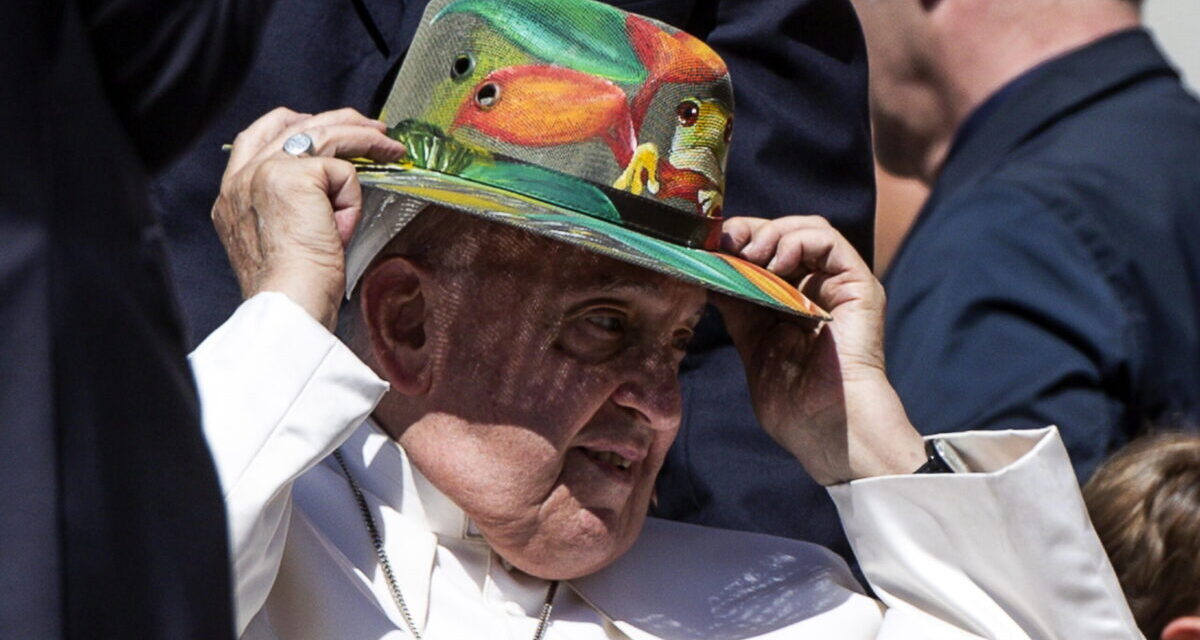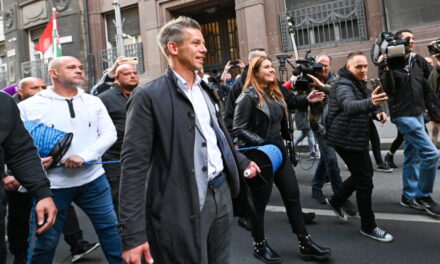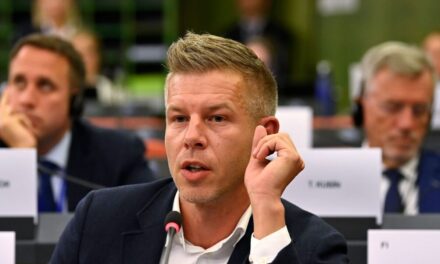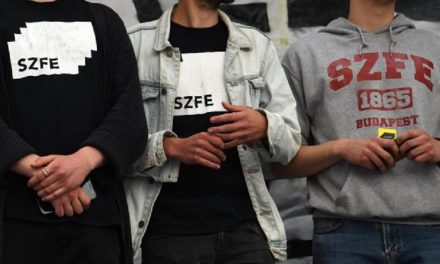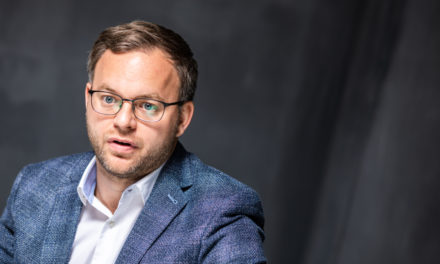The Catholic head appears to have been caught in the crossfire of conservatives in the Global South and ultra-liberals in Europe. Some are already envisioning a schism.
On a frosty afternoon in central Berlin last November, a few hundred German Catholic politicians, theologians and tycoons gathered in the chandeliered grand hall of the Hotel Titanic Chaussee to put the finishing touches on an ambitious reform that would allow them to effectively override their own bishops—and thus the Holy See.
At the raucous meeting that lasted several hours, delegates complained that Pope Francis had failed the German church on key issues such as church sex abuse, gay marriage and transgender rights, on which German believers were desperately seeking progress, Politico reports .
With the help of science, we have already discovered that there are more than two genders - and yet the Pope rejects this! No one knows what his position is, he keeps changing his mind. There is no clear line in his actions, no logic
– fumed theologian Andreas Lob-Hüdepohl.
Since the beginning of Francis' papacy, he has faced attacks from conservatives who worry that he has gone too far on issues such as homosexuality, abortion and his approach to capitalism. However, those gathered in Berlin complained about the opposite: that he was not liberal enough.
Francis was chosen to renew the Catholic Church
- said Thomas Söding, vice president of the Central Committee of German Catholics, to the group that arrived in the German capital in November. But since the Pope could not bring about meaningful change, the Church remained archaic and unchanged, he said, so the Germans are forced to try to go their own way.
It would be a mistake to say that Ferenc did nothing to earn his reputation as a liberal revolutionary. Since the beginning of his papacy, he has stirred church sentiments with his intervention in social debates about sexuality, the economy, immigration and climate change. He has introduced some real reforms, including opening high-ranking positions in the Holy See to women, and has a famously tolerant philosophy. He also stated that heaven is open to atheists. When reporters on the papal plane returning from his first trip abroad asked him about gay priests, the pope replied: "Who am I to judge?"
All this was accompanied by a conspicuous effort at humility. Francis decided to move into the Vatican's cramped Santa Marta guest house instead of the luxurious residences of previous popes, replacing the bulletproof papal mobile with a navy blue Ford Focus.
The attacks are not coming from where everyone would have thought
But even as conservatives in the United States, Africa, and the Vatican itself fumed over Francis' self-consciously populist approach, there were no serious right-wing attacks on his authority. Instead, the greater challenge came from those who objected that the pope's liberal reforms were half-hearted and did not lead to theological change while being overshadowed by scandal.
Progressive Catholics in Germany and elsewhere have seized on Francis's drive to bring some consultative democracy to the church — an initiative he has dubbed "syndalism." Since then, they have used this to usurp the powers reserved for ordained priests and steer the local filias in a direction that suits them better. Many people really want to use the synodal process to actually change church laws.
For much of the past year, the German challenge has swept through the Catholic Church, warning of the danger of schism and urging conservative tightening. It did not go unnoticed that the threat to ecclesiastical authority erupted precisely in those regions that were the cradles of the Lutheran changes in the 16th century. Last year, a well-known archbishop called what happened in the German Church "the biggest crisis since the Reformation" And while the rebellion has recently died down, it doesn't look like it's ending.
The irony of fate is that Francis himself provided the German Catholics with the means of challenging the Vatican. During his papacy, he himself founded several large church-level consultation forums, so-called synods, while extending their scope to the laity as well and encouraging others to follow his example.
In the crossfire
Some say Germans are playing with fire when they mistakenly believe that a 2,000-year-old church with a fundamentally authoritarian hierarchy could ever function like a modern democracy.
They misunderstood the Pope. The Pope is not a liberal
Cardinal Jean-Claude Hollerich, a close ally of Francis, told the newspaper. According to him, the German church "aggressive lobbying" and American-style culture warrior polarization. Such politicking, he added darkly, "destroys the unity of the church" .
Ferenc is torn between liberal Europe and the predominantly conservative global south. He is largely preoccupied with containing—or silencing—dissidents and rebels from both sides; for the right-wing it means withholding reforms, while for the left it makes promises it is unlikely to be able to keep.
The best example of this tightrope walk was the pope's most ambitious, much-hyped consultative "council," which followed the two held in 2015 and 2018. The "Synod on Synodality" began in 2021 and culminated in a month-long forum in Rome last year, where some 450 delegates (including lay people and women) discussed the main issues from different cultural perspectives. This large-scale international exercise of cultural bridge building ends in October; as with previous councils, the results can be incorporated into canon law if the pope so chooses.
Gmür, bishop of Basel, was also among those present. He recalled a debate in which African bishops called for polygamy to be allowed — specifically asking whether a man must leave all his wives to convert — while some European participants called for canonical recognition of LGBTQ rights. "We came to the conclusion that polygamy is not compatible with the Bible," Gmur said. "And certainly not with the New Testament" . Regarding LGBTQ rights, "even the word was a problem," he added.
"This is why we refer to them in the document as persons with a different personal sexual identity and orientation."
Is there a danger of schism?
The current synod has always been feared by conservatives, who see it as an insidious Trojan horse of a woke program. As if to confirm this, the synod's own leaders presented it as the last great hope of introducing real structural reforms: "If we miss this opportunity, we cannot achieve the goal of our mission," Cardinal Mario Grech, the general secretary of the synod.
According to two sources familiar with the discussions in Rome, the bishops discussing the future of the synod had an ally in the increasingly influential and controversial Cardinal Fernandez. As the author of the same-sex blessing statement, Fernandez is a prominent representative of the compromise agenda of "two-speed church." This is an idea that - if partly by accident - is starting to become a de facto Vatican policy to bridge the gaping contradictions in the Church.
This idea could literally tear the institution apart and usher in a new kind of Catholicism,
in which moral judgments are increasingly subject to regional interpretations, which more closely resembles the way the Protestant Church operates. In practice, this would be one of the possibilities for Ferenc to give the Germans what they want - albeit delayed and on his own terms.
There are whispers that Francis himself privately supports this outcome, seeing it as a way to rid the church of controversy over sexuality and return to a grassroots approach that puts power in the hands of local priests. He seems to have given up trying to impose a single, universal moral attitude in his pursuit of pleasing everyone. At this point, if the Germans or others decide to irreversibly break with Rome, how could Pope Francis resist? - asks the paper.
Featured image: Pope Francis receives a gift from the faithful during his weekly general audience in St. Peter's Square in the Vatican on June 26, 2024. MTI/EPA/ANSA/Angelo Carconi

